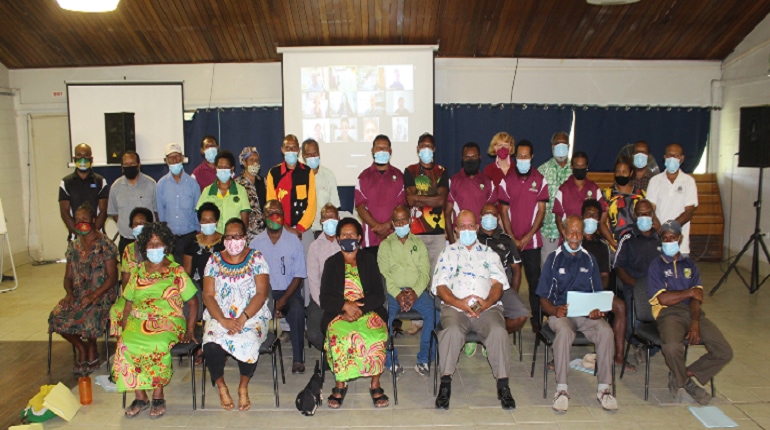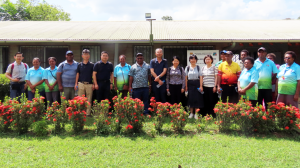Sweetpotato farmers from Eastern, Jiwaka and Western Highlands province are keen on improving sweetpotato production. They are using disease free sweetpotato planting material and pheromone traps to minimise spread of male weevils, mulch and barrier plants. Pheromone traps are designed to trap male weevils from as far as 500 metres. Weevil population is controlled by using pheromone traps. They also used living barrier plants and mulch.
The living barrier plants were; Silver leaf desmodium (Desmodium unicinatum), French marigold (Tagetes patula) and Smooth Senna (Senna Septemtrionalis). They showed enormous potential as repel-lent plants to the sweetpotato weevil.
Much barrier options used as a barrier to the weevils. Sugar cane, Leucena (Leucena leucoephala) and Mexican sunflower (Tithonia) also showed potential in repelling sweetpotato weevils. This is part of a 5 year project funded by the Australian Centre for International Agricultural Research (ACIAR) focused on ‘Developing improved crop in support of intensification of sweetpotato production in Papua New Guinea. ’
Trials in the field were run in three areas to assess sweetpotato yields and disease management methods.
NARI researcher, Wilfred Wau, explained that the research team used some approaches but farmers preferred to use PT and pheromone traps to minimise the infestation of Sweetpotato Weevil (Cylas formicarius) and West Indian Sweetpotato Weevil (Euscepes postfaciatus) , major pests in sweetpotato production.
UNITECH Researcher Melanie Pitiki expressed that the project not only helped farmers improve skills and knowledge in sweetpotato production but helped develop her skills. Both researchers thanked NARI, UNITECH, ACIAR, FPDA, and other partners who made valuable contributions throughout the life of the project and look forward to future research collaborations. Aku Kulo, a sweetpotato farmer from Eastern High-lands, is thankful that the project has helped improve sweetpotato production and yield.
“This project has seen very positive results from the trials, I was surprised to see almost 30 bags of sweet-potato harvested using PT vines. This is very encouraging for me and other farmers who have benefited throughout the project ,” Mr Kolu expressed.
The 5 year project ended through a video conference by partners within PNG and overseas to discuss challenges experienced, develop innovative ideas and work closely with potential partners to realise positive development with farmers involved in sweetpotato production.






